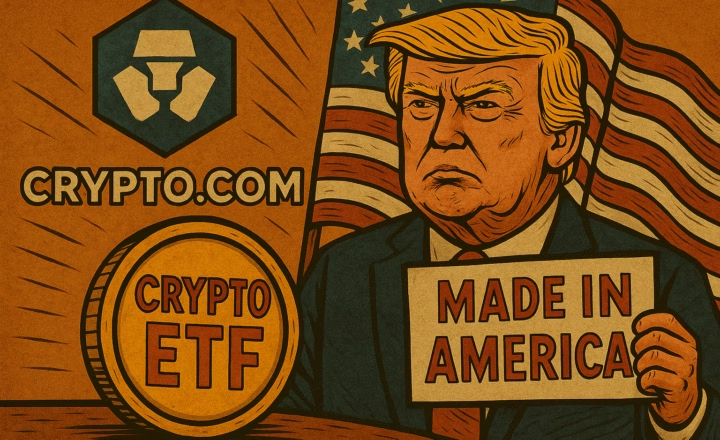Grayscale Proposal for Staking Put on Hold
The U.S. Securities and Exchange Commission (SEC) has officially postponed its decision on whether to allow staking services for Grayscale Ethereum Trust ETF, extending the review process to June 1, with a final deadline set for October 2025.
The delay applies to both the Grayscale Ethereum Trust ETF and the Grayscale Ethereum Mini Trust ETF, which had been seeking approval to allow investors to stake their Ether holdings in exchange for yield rewards—a move seen as key to enhancing the appeal of Ether ETFs.
The original request, filed by the New York Stock Exchange (NYSE) on Feb. 14 on behalf of Grayscale, aimed to amend listing rules to include staking functionality, a core feature of the Ethereum network after its transition to proof-of-stake in 2022.
Staking: A Game-Changer for Yield-Oriented Investors
Staking allows users to lock up their ETH to help secure the network and earn passive returns. Currently, platforms like Coinbase and Kraken offer annual staking yields ranging from 2% to 7%, making it an attractive supplement for institutional products such as ETFs.
Adding staking to Ether ETFs could unlock predictable income streams for investors and help differentiate these funds from non-yielding Bitcoin ETFs. As of April 11, Ether ETFs have collected a total of $2.28 billion in net inflows—modest compared to Bitcoin’s $35.4 billion, according to Sosovalue.
“Staking yield is essential to capturing the full economic value of ETH for investors,” said one ETF strategist.
SEC Approves Options Trading, but Delays Yield Expansion
The delay on staking stands in contrast to the SEC’s approval of options trading for multiple spot Ether ETFs on April 9. The agency gave the green light for derivative contracts on funds managed by BlackRock, Bitwise, and Grayscale, allowing investors to hedge or leverage positions in Ether through traditional brokerage platforms.
Options trading is widely seen as a critical step toward institutional adoption, adding strategic flexibility for portfolio managers. However, the SEC’s caution on staking reflects ongoing regulatory uncertainty around how staking might intersect with securities laws and whether staked assets may be interpreted as new investment contracts.
BlackRock’s 21Shares iShares Ethereum Trust also submitted a staking request in February and is awaiting feedback from the agency.
Ether’s Struggles Continue Despite Product Expansion
Despite the growing list of ETF features and approvals, Ether (ETH) has had a challenging year. As of April 14, ETH is trading below $2,000, significantly underperforming both Solana (SOL) and XRP, which have rallied sharply in 2025.
While ETH hit a 52-week high of $4,112, it remains well below its all-time high of $4,866 from November 2021. In contrast, Bitcoin has broken new ground, helping drive the ETF market’s strongest inflows.
Analysts suggest that without staking, Ether ETFs may struggle to attract new capital, especially given ETH’s more technically complex value proposition compared to Bitcoin’s “digital gold” narrative.
Final Thoughts: Staking Approval Could Be ETH ETF Tipping Point
The SEC’s decision to delay staking may be procedural, but it also underscores how staking sits at the frontier of crypto regulation. For ETH ETFs to compete effectively in a saturated market, offering staking rewards could be the key to unlocking broader investor interest.
With the final ruling now pushed to October 2025, all eyes will remain on the SEC’s evolving stance—and whether it’s ready to embrace Ethereum’s full utility, not just its price exposure. Until then, ETH ETFs may remain second-tier players in the institutional crypto product race.













